On the trail of the greatest female British adventurer you've never heard of
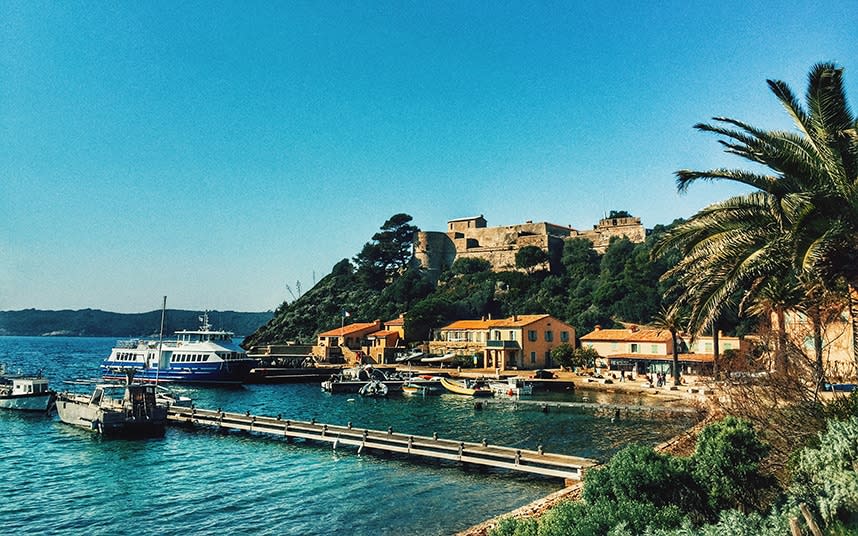
This, then, was where she had lived, from 1929 to 1930, my newfound heroine. Like her, we’d bobbed along in a little boat from Port-Cros, the only settlement on the French Med island of the same name.
Directly behind the hamlet (quay, a bar or two, B&Bs, a scattering of houses) the island rose, rocky and forested. On the heights, five abandoned forts had once defended southern France, with limited success.
Otherwise, this was wilderness, threaded with tendrils of urbanity, so we boarded the dinghy and bounced around headlands to the hidden bay. Its sides rose quite sheer, to a fort on one side, a wooded ridge on the other.
In the bottom at sea-level, visible beyond the beach and reeds, was a house no more distinguished than any standard Provençal bungalow.
There was no other sign of man. The modern owners being absent, the garden gate was locked. We climbed over the wall. You’d feel stupid being stopped by a locked gate when in pursuit of Vivienne de Watteville. She was the heroine in question.
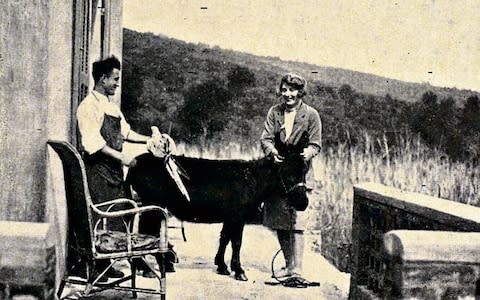
Ms de Watteville was one of 20th-century Britain’s greatest adventurers and travel writers. I’ve no idea why we don’t all know of her and hold her in the highest esteem. She had lived right here, for more than a year, with a parrot, a donkey, self-doubts, and a lust-crazed Neapolitan handyman. I looked at the house, and terrace – almost identical to a 1929 photo I’d brought – and found it momentarily difficult to breathe.
Hyères, to whose mainland municipality the island of Port-Cros is attached, has a long history of English visitors. Our forebears wintered there from the 1760s. The place was also consistently stiff with English-language writers. In 1928, D H Lawrence joined writer chum Richard Aldington on the island.
Aldington was writing his Great War novel, Death of a Hero. Lawrence was both dying and denying he was ill. He didn’t stay long. “I don’t care for islands,” he said. “Especially very small ones.”
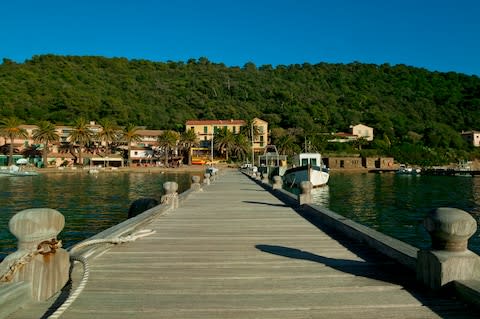
Vivienne arrived on Port-Cros a year later, the most admirable of all Hyères expatriates. I’d never heard of her until recently, when I got hold of her book recounting her Port-Cros life: Seeds that the Wind May Bring. By the time she arrived here, though, her young life had been extraordinary.
In 1909, when she was nine, her English mother died. Subsequently, her father, a Swiss naturalist and hunter, brought her up as if she were a boy. They explored Norway and the Alps, roughing it, shooting and fishing. When Vivienne was 23, she and her father roamed off to Africa to shoot game for Berne’s Natural History Museum.
He was killed by a lion on the Congo-Uganda border. Thus, she added the leadership and feeding of 60 porters to her duties as camp nurse, hunter and taxidermist. Her book Out in the Blue tells the tale.
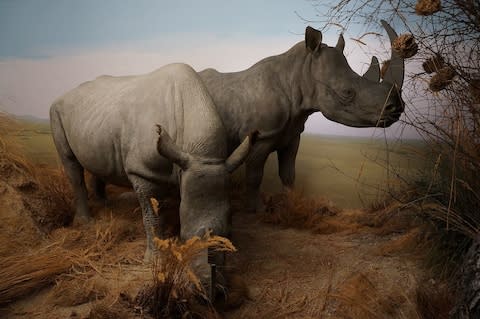
She returned to Africa three years later, to tackle nature alone and unarmed. “Wilds become your familiar love, civilisation the unknown which you spurn and fear,” she wrote. This strain runs through her work, and life, but is only part of the story. She was also a stickler for proper standards. Meeting climbers on Mount Kenya, she invited them back to her hut – for cocktails.
Later, on Port-Cros, she relished her distance from development, but also furnished her hideaway with skirting boards, an escritoire, wall-clock and other polished items from Paris. There was much silver, a cherished gramophone, an upholsterer shipped in from Geneva, and a parrot bought partly because its yellows matched her tea cups.
After her second African trip (chronicled in Speak to the Earth), Vivienne arrived on Port-Cros with her Swiss grandmother. She rented one of the most isolated houses in Europe. Here was the wildness she sought. Early passages in her book tingle with anticipation. It was going to be great. As things turned out, it both was, and wasn’t.
The locals were OK, but cheated relentlessly. Workmen “worked as if they owned eternity”. And the island’s then-owners, living across the mountain in the hamlet, treated her with a mix of charm, disdain, disbelief, cruelty and greed. “Bleak is the battle of the lone woman in Latin countries,” she noted.
She had hired as a handyman Josef, a Neapolitan of immense strength and great appetites. He desired her keenly, though Vivienne was too ladylike to say so straight out. Instead, she recorded that, on one occasion, “he suddenly swung round, caught hold of my ankle, swooped and bit it.”
Vivienne was an articulate fretter about liberty, love and eternity, nature, happiness and the human spirit. She was especially good at embracing contradictions. Feeling oppressed on Port-Cros, she wrote: “It was my own will to be free that bound me hand and foot.”
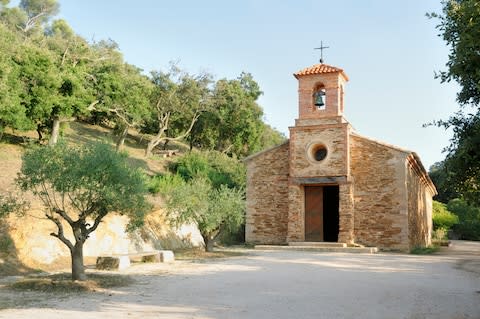
But there were good times, too: the peace, the untouched natural splendour, the Med out front, the exhausted woodcock – taken in, then released – whose “brown wings smelled so deliciously of peat and innocent wilds.” And then there were the visitors, for whom Vivienne prepared – polishing frantically, hiring a cook from the mainland – as if receiving at a country house, rather than a remote island outpost.
One – Captain George Gerard Goschen, known as “Bunt” – “had matriculated in sunsets with distinction”, and thought nothing more important than Brahms. He was clearly Mr Right, though Vivienne edged towards marriage with a mix of foreboding and delight. Then again, her single status had caused vicious rumours on the island and beyond. “I scorned respectability but I had never envisaged what it would be like to be thought not respectable,” she wrote. Engagement solved that.
Finally, with some regret, she shut up the house and left the island to marry Bunt. We now left too, back to the island’s only settlement and Le Manoir, the historic hotel-restaurant. It had, wrote Vivienne, “an aloofness… which nothing could disturb.” Overseeing the water, amid trees and gardens as on a plantation, it still did, coming on as a neoclassical branch office of more elegant times.
Much the same could be said of hotel owner Pierre Buffet, born the year Vivienne left Port-Cros, an indirect relative of the island owners back then. Over sea bream under the trees, he was more gracious about her than she had been about his forebears.
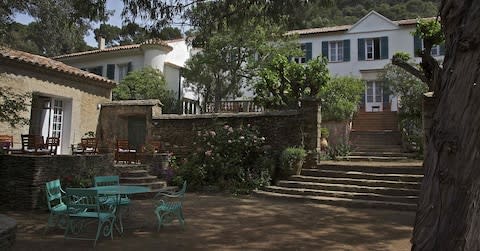
He told of waves of French literary figures who made Port-Cros their summer base between the wars. For a wild place, the island was thick with literature. Pierre would, I think, have made an admirable host for Vivienne. In her absence, he’s an admirable host for everyone else.
After Port-Cros, Vivienne and Bunt moved to Staffordshire, then a Hampshire farm. There were two children, and talks on the BBC, before Vivienne died from cancer at 56, in 1957. Strangely, Seeds that the Wind may Bring was published only posthumously, in 1965. I’ve no idea why the delay.
Whatever the truth – and here I’m talking to Methuen, her original publisher – the book needs to be reissued. So do her two other works. I’ll settle for five per cent.
The essentials
Port-Cros is one of three inhabited Iles-d’Or islands, off Hyères. Entirely protected as a national park, it covers 2.5 sq miles, with a permanent population of around 15.
There’s a ferry to the island from Hyères – one-hour crossing, £25 return (tlv-tvm.com).
Once on the island, you walk. Flybe (flybe.com) flies from Southampton to Toulon-Hyères, from May 26 2019. Otherwise, Marseille is the nearest airport.
Stay at Le Manoir (hotel-lemanoirportcros.com; doubles from £207; seasonal opening).
The Hotel Les Orangers, on the mainland at Hyères is a family-run two-star with lovely garden (hotel-orangers.fr; doubles from £53).

